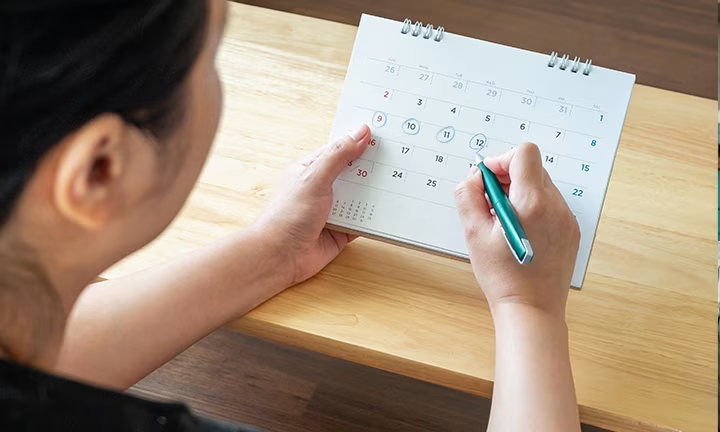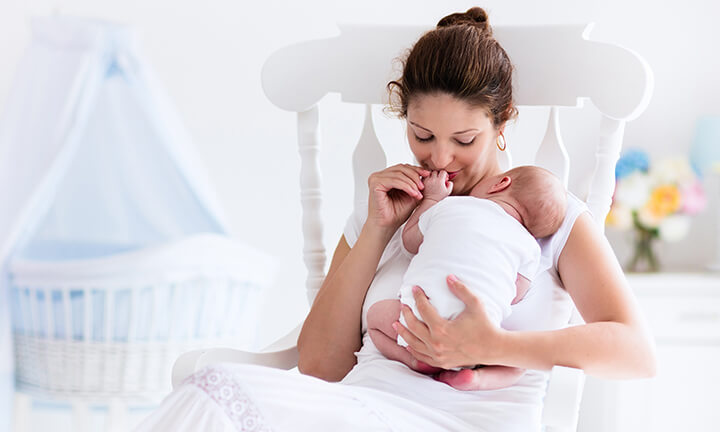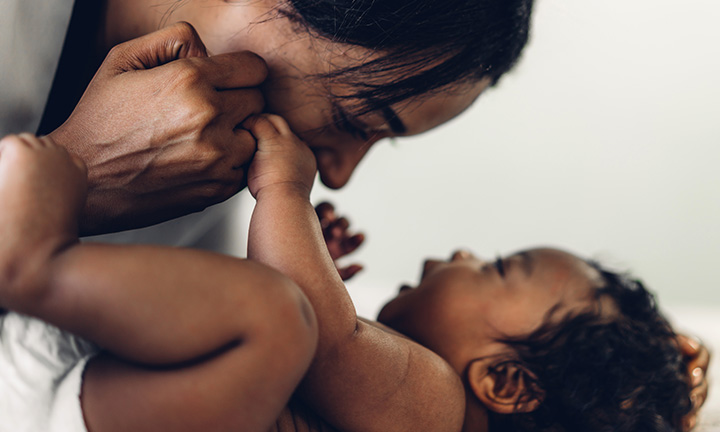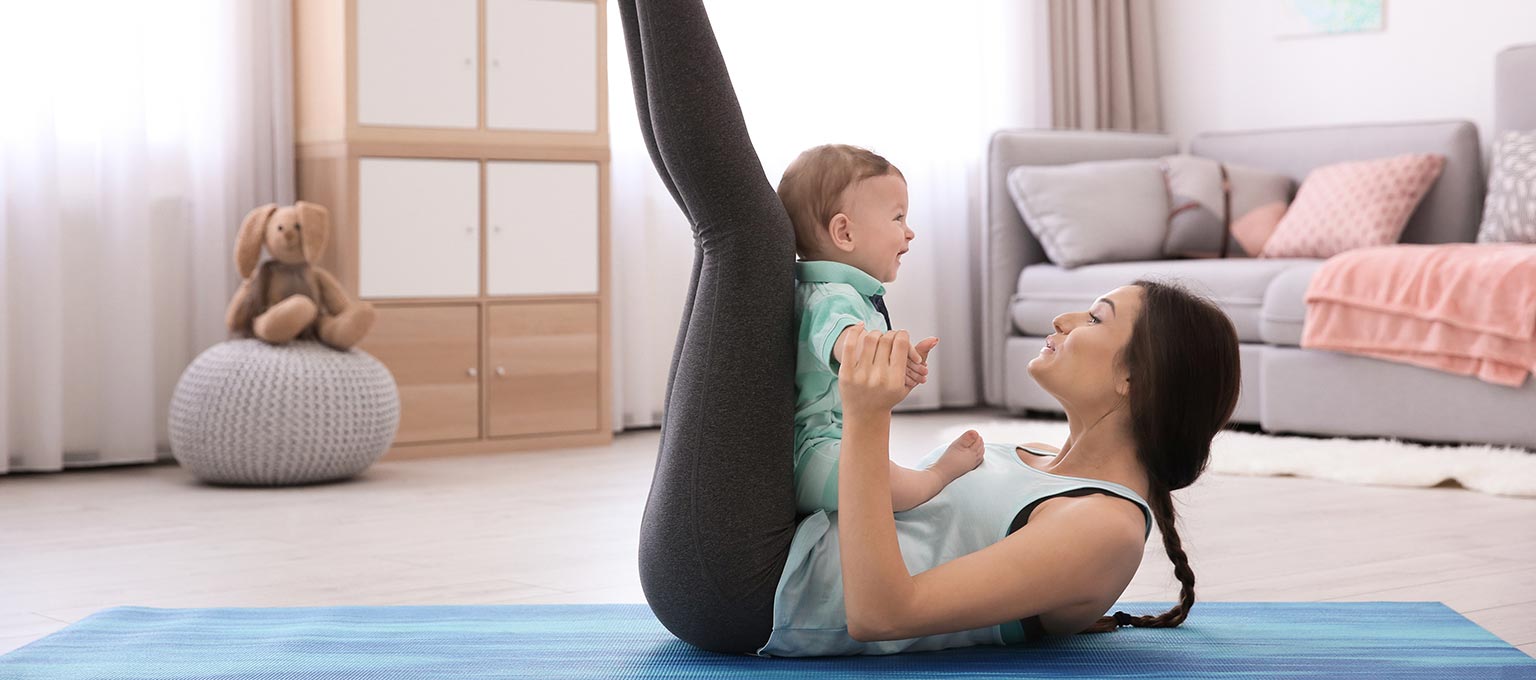
When Does Your Period Return After Birth? Postpartum Guide
You may be asking when you get your period after birth. For most people who aren’t breastfeeding, menstruation returns around six to eight weeks postpartum, marking the end of the typical postpartum period. If you’re exclusively nursing, elevated prolactin levels from frequent feeds trigger lactational amenorrhea, often delaying your first bleed for three to six months, or even longer until you wean.
Your first period after baby may bring changes in flow and symptoms, but knowing what to expect can help you feel prepared:
Understanding how long after birth you get your period and potential postpartum menstruation symptoms lets you track your body’s recovery and seek help if bleeding or pain seems unusually heavy or prolonged. Let’s explore what’s normal, what may need attention, and how to manage this new phase of postpartum life.
When Do You Get Your First Period After Birth?
When you can get your period after giving birth depends primarily on feeding choices. During the typical postpartum period—the six to eight weeks after delivery—people who aren’t breastfeeding often menstruate again around six to eight weeks postpartum.
Because the timing of when menstruation resumes after birth varies so widely, some resume soon after delivery, while others only once nursing stops. It can help to track any spotting or hormonal signs. If your cycle feels unusually delayed or heavy, consult your healthcare provider for personalized guidance.
First Period Postparum and Breastfeeding
If you’re exclusively nursing, when you get your period after birth while breastfeeding often depends on how long and how frequently you feed. Fully breastfeeding typically triggers lactational amenorrhea, keeping you free of menstrual periods for about three to six months or longer.
Your first period after nursing can show up anytime from a few months to years later. Many people don’t menstruate again until they start weaning. Signs of your period returning while breastfeeding may include light spotting or non-ovulatory bleeds before six months postpartum, often when your little one goes longer between feeds.
Are There Changes to Breast Milk?
You may notice a temporary drop in supply and more nursing discomfort from mid-cycle to your period due to normal hormonal shifts. To help minimize this dip, a daily supplement of 500 to 1,000 mg of calcium and magnesium, from the middle of your cycle through the first three days of bleeding, may be beneficial. Always consult your healthcare provider before starting any supplement.
What to Expect From A Postpartum Period
Many wonder if the first period after pregnancy is heavy. Your first menstrual bleed after birth may feel different—some people see a heavier flow, others notice it’s lighter or shorter than before.
In the early postpartum period, your cycles may be irregular for the first few bleeds. A typical period lasts three to seven days and involves approximately two to three tablespoons of blood. Any bleeding that is heavier or longer than that may simply reflect your body's hormonal readjustment. Over time, usually several cycles, your flow and cramping often settle into what felt “normal” before pregnancy.
In terms of birth control after pregnancy, it's helpful to know that some contraceptive pills may result in lighter or shorter periods and reduced menstrual cramps.
If your bleeding seems excessively heavy (soaking a pad every hour) or you’re concerned about prolonged irregularity, consult your healthcare provider for tailored advice.
How Long “Should” Your First Period Last After Giving Birth?
After having a vaginal birth or a C-section, how long your first period lasts varies. The duration of your first period after giving birth can vary widely and depends on your body. It can range from a few days to a whole week. Just as before pregnancy, some people will experience longer periods, while others will have shorter ones. It may take a few cycles for your period to return to a regular pattern.
Expect a duration similar to your pre-pregnancy flow. If your bleeding extends beyond seven days or feels unusually heavy with large clots, consult your baby’s healthcare provider for personalized guidance.
Painful Period
Your first period after pregnancy may swing either way. Some people, even those with a history of painful periods like endometriosis, find their cramps actually ease up temporarily after childbirth. For others, periods can be heavier, longer, or more painful. This often happens because pregnancy stretches the uterus and dilates the cervix, creating a larger cavity and more endometrium to shed, which can intensify cramping during your first few bleeds.
If discomfort feels unusually severe or persists beyond your typical pain tolerance, consider discussing it with your healthcare provider. They can check for treatable causes—like polyps, submucosal fibroids, or adenomyosis—and recommend minimally invasive surgery or hormone therapy if needed.
Lochia Vs The First Period Postpartum
It’s key to distinguish your period or postpartum bleeding (lochia) from your first period after having a baby:
If bleeding spikes again after tapering off or you’re past six weeks and still experience heavy bleeding during your period after birth, consult your healthcare provider to confirm whether it’s lochia or your menstrual cycle returning.
Can You Get Pregnant Before Your First Menstrual Period Postpartum?
Because ovulation can commence in the absence of menstruation, can you get pregnant before the first postpartum period? Yes—pregnancy is possible before your first postnatal bleed. If you’re not exclusively breastfeeding, your hormones may rebound by six to eight weeks postpartum, allowing an egg to release even without a period.
To avoid an unexpected pregnancy, discuss birth control options with your healthcare provider early. Non-breastfeeding parents may consider contraception as soon as three weeks after delivery, while breastfeeding parents may wait until three months postpartum.
When to Contact Your Healthcare Provider
Contact your provider immediately if you experience an extremely heavy postpartum period, such as soaking through more than one pad an hour for several hours, passing blood clots larger than a plum, or if you have foul-smelling discharge—these could signal postpartum hemorrhage.
It’s natural to worry when you have no period after pregnancy; however, remember that it could take about six to eight weeks for your first menstrual period to return after giving birth, and even longer if you’re exclusively breastfeeding. If you’re not breastfeeding and your period hasn’t returned after three or more months, contact your provider for more advice.
FAQS AT A GLANCE
Your first period after a C-section may bring uterine cramps tugging at your scar, bright red to brown bleeding for three to seven days with clots, and PMS symptoms like bloating, breast tenderness, and mood changes. Contact your provider if the pain is severe.
The Bottom Line
Understanding your postpartum period helps you know when you may get your period after birth, recognize the difference between lochia and true menstrual bleeding, and notice any heavy flow or severe cramps that deserve medical attention. While most cycles settle back to your pre-pregnancy pattern within a few months, tracking changes—whether you’re exclusively nursing or not—lets you feel more in control of your body’s recovery.
Read our postpartum articles to find out more about what happens in the postpartum period and the healing process after childbirth. For easy access to digital offers on Pampers’ products and more as you navigate postpartum life, download the Pampers Rewards App.
- American College of Obstetricians and Gynecologists, Your Pregnancy and Childbirth: Month to Month, 7th ed. (Washington, DC: American College of Obstetricians and Gynecologists, 2021).
- Cleveland Clinic. “Do Your Periods Change After Pregnancy?”
- Cleveland Clinic. “Lochia.”
- Cleveland Clinic. “Menstrual Cycle.”
- Cleveland Clinic. “Physical Changes After Delivery.”
- Cleveland Clinic. “Postpartum.”
- La Leche League International. “Menstruation and Breastfeeding.”
- NCBI Bookshelf. “Physiology, Postpartum Changes.”
- NCBI Bookshelf. “Postnatal Care of the Mother and Newborn.”
- NCBI Bookshelf. “Postpartum Care of the New Mother.”
Read more about Baby
Join a World of Support
through Pregnancy and Parenthood.








